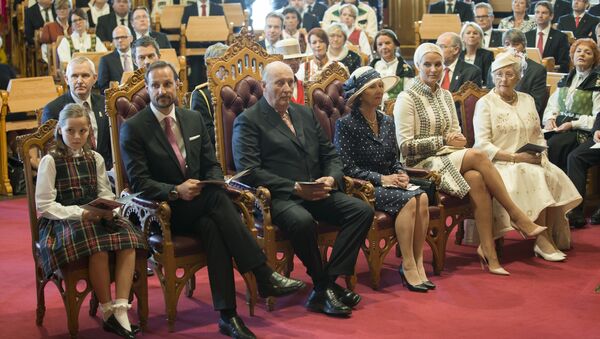On Tuesday, the Norwegian Parliament is poised to remove the paragraph about the holiness of the monarch from its Constitution, national broadcaster NRK reported.
The proposal to amend the Constitution has been set forth by three right-wing MPs on the initiative of law professor Eivind Smith. The proposal is expected to be unanimously approved by the parliament. Subsequently, some language changes will also be made to the new version of the Constitution.
Today's immunity clause reads as follows: "The king's person is holy; he cannot be charged or accused." The new wording of the Constitution, paragraph 5, concludes with the following: "The king's person cannot be charged or accused."
"The religious reasons for the king's elevated position seem quite remote for today's generations. It is no longer natural to see the king's power as part of the divine order, where all rulings radiate from our Lord," Conservative Michael Tetzschner, one of the MPs behind the proposal, explained.
READ MORE: 'Little Piece of Freedom': Norway's Libertarian Utopia Spreads Its Wings
Tetzschner and his colleagues pointed out that constitutional provisions on certain forms of immunity for the head of state exist not only in monarchies, but in some republican state forms as well.
The introductory wording in paragraph 5 about the holiness of the king have remained unchanged since 1814, when the Kingdom of Norway was forced to join in a personal union with Sweden. However, a provision that the monarch should be "king by God's grace" has already been removed.
"The characteristic 'sacred' part of in the Constitution, paragraph 5, has been left in place after the last remnant of a religiously justified monarchy fell out of the Constitution," the recommendation of the Constitutional Committee said.
The removal of "holiness" will neither affect the meaning of the Constitution nor undermine the monarch's immunity, it was underscored.
READ MORE: 'Jesus Was a Refugee': Church of Norway Calls for Open Borders
The Norwegian monarchy can trace its line back to the reign of 9th-century Viking king Harald Fairhair and previous kingdoms which were united to form Norway; it has been in unions with both Sweden and Denmark for long periods.
Formally speaking, the executive powers vested in the Norwegian monarch are significant, but are treated only as reserve powers and as an important security part of the role of the monarchy. In practice, these are almost exclusively exercised by the Council of State in the name of the King.
The present monarch is 81-year-old King Harald V, who has reigned since 1991, succeeding his father, Olav V.
#NorwegianRoyalFamily poses for an official portrait to mark the #KingHaraldV and #QueenSonja 's 80th birthday in #Oslo, #Norway —16/02/17 pic.twitter.com/AYs2XdXL1B
— Royalchildren_Europe (@royalchildren_) February 16, 2017


